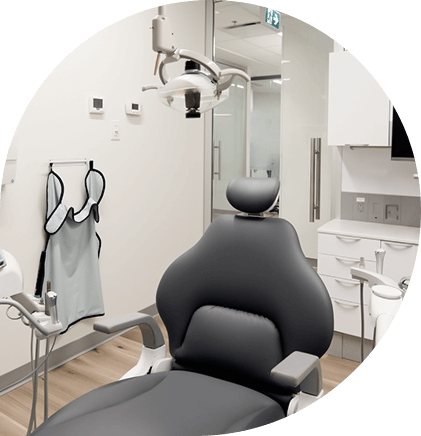Babies are so cute with their big curious eyes and their toothless grins. But it isn’t long before these little treasures start to show the signs of teething that will usher them into life with the many teeth that they will need to support their health and nutrition.
Although some babies are born with an erupted tooth or two, most baby teeth start to emerge from the gums somewhere around the six-month mark. This may be indicated by red cheeks, a drooly grin or fussiness and a desire to chew on anything they can get their hands on – including fingers! The action of gumming away at a cloth or finger has the effect of soothing sore gums and helping the teeth to erupt.
What Can I Do for My Teething Baby?
In some cases, you might not have to do anything! Many babies make it through their first eruptions with minimum crankiness, though some babies can become quite uncomfortable. If your baby’s teething is causing significant discomfort, start with the least invasive measures and proceed to medication only when other methods prove unsatisfactory.
To help calm a fussy baby, start by rubbing his or her gums with a clean washcloth. This practice helps to stimulate the gums but also introduces babies to the idea of having something put in their mouth. Eventually, we will want to proceed to a baby toothbrush and babies that have had exposure to fingers or washcloths in their mouths are less likely to resist this important part of their oral health. Offer baby cool foods to mouth through a mesh bag or secure an ice cube inside of a wet washcloth and monitor baby as she uses the ice to soothe inflammation in his or her soft tissues. It is important to monitor your baby while she uses a mesh bag or cloth to ensure that none of the food or ice can get free from its holder and become a choking hazard.
Many commercial items are available to help your baby with teething, but what works for one baby may not work for the rest. So, try offering several options and see which one works best for your baby.
You may see your baby wanting extra holding and coddling when they are cranky. Wanting to be held is a natural response to discomfort and a great way to reinforce the parent-child bond. When these measures don’t work, though, we recommend using an over-the-counter solution to decrease baby’s discomfort. Ibuprofen or acetaminophen are safe for use when used as directed, and oragel may also provide comfort – though babies who are at risk of biting their tongue or choking while their gums are numbed should be actively monitored.
Once Teeth Have Erupted
Once your baby’s new teeth have cut through their gums, relief is in sight. Your baby will be teething regularly in their first several years as all of their teeth move into place. Once these teeth are in, it is important to care for them actively, since baby teeth are more prone to decay than adult teeth. Baby teeth are smaller and have thinner enamel than adult teeth, so cavities can develop more quickly.
Once teeth have erupted, you can stop using a washcloth to clean the gums each day in favor of using a small baby toothbrush with some unfluoridated toothpaste until your baby is 2 years old, or at the recommendation of your dentist. Brushing babies teeth morning and night and never letting baby go to sleep with a bottle of juice or milk (only water) will keep their teeth clean and healthy.
Once teeth are touching, it is important to begin including flossing in your child’s oral care routine. Small disposable flossing wands make this a quick and easy part of the process.
Why Are Baby Teeth Important?
Baby teeth are so important for your child’s healthy development. Not only are baby teeth the teeth that we establish our oral care habits with, these teeth also form an important function. While some may think these teeth are dispensable, they are important placeholders for the adult teeth that will be coming. As baby teeth fall out, the teeth on either side of them holds space for adult teeth to slide between the other roots and establish themselves in the correct position.
Baby teeth are also a part of the jaw’s healthy development. Baby teeth provide the necessary bone stimulation needed for appropriate jaw development through their root systems. Without baby teeth and their roots, the jaw is not stimulated to send sufficient nutrients into the bone. Caring for your child’s baby teeth while they are young does much to establish a set of healthy oral care habits for the rest of their lives.





